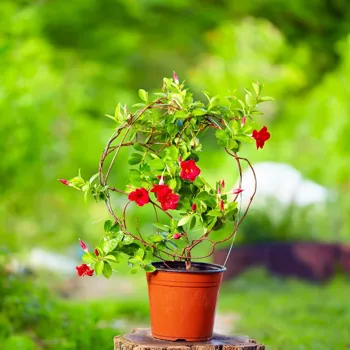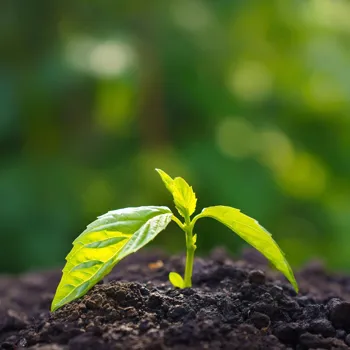Discover the joys of gardening in India: Tips and benefits for every home. Read on to unlock the green paradise!
Gardening: 7 Reasons to Grow Your Own Green Paradise: Tips and Benefits for Every Indian
Home
Gardening: A holistic activity for wellness in modern Indian life
In the hustle-bustle of modern Indian life, finding moments of peace and connection with nature can often feel like a distant dream.
But what if I told you that a simple, accessible activity could bring you closer to nature, improve your well-being, and even provide fresh, healthy food for your family? The answer, my friends, lies in gardening!
Gardening, whether it's a sprawling backyard or a collection of pots on your balcony, offers a wealth of benefits that extend far beyond just a pretty view.
Let's explore seven compelling reasons why starting your own garden can be one of the best decisions you make this year, especially in the unique context of Indian homes and lifestyles. From boosting your health to promoting sustainability, gardening has something to offer everyone.
So, grab your gardening gloves, and let's dig in!
Gardening reduces stress in fast-paced world, fosters peace and social connections
First and foremost, gardening is a fantastic stress reliever. In today's fast-paced world, stress has become an unfortunate part of our daily lives. The constant pressure from work, family responsibilities, and social expectations can take a toll on our mental and physical health.

However, studies have shown that spending time in nature, and particularly gardening, can significantly reduce stress levels. The act of digging in the soil, planting seeds, and nurturing plants has a calming effect on the mind.
It allows you to disconnect from the digital world and reconnect with the natural world, fostering a sense of peace and tranquility. The rhythmic movements involved in gardening, such as weeding and watering, can be almost meditative, helping to quiet the mental chatter and promote relaxation.
Moreover, the satisfaction of watching your plants grow and flourish can boost your mood and sense of accomplishment.
In the Indian context, where joint families and close-knit communities are common, gardening can also provide a shared activity that brings people together, fostering social connections and strengthening bonds.
Imagine spending quality time with your family, tending to your garden and enjoying the fruits (or vegetables!) of your labor together.
Start a kitchen garden for fresh, healthy produce in India
Secondly, a kitchen garden can give you fresh and healthy produce. One of the most tangible benefits of gardening is the ability to grow your own fresh, healthy fruits, vegetables, and herbs.
In a country like India, where access to affordable and nutritious food can be a challenge for some, growing your own produce can be a game-changer.
By starting a kitchen garden, even a small one, you can ensure that you have access to pesticide-free, organically grown food that is bursting with flavor and nutrients. Think of juicy tomatoes, crisp cucumbers, leafy spinach, and fragrant herbs, all grown in your own backyard.
Not only will you be able to enjoy delicious, healthy meals, but you will also save money on your grocery bills. Moreover, growing your own food allows you to control what goes into it.
You can avoid harmful pesticides and herbicides and choose organic methods of cultivation, ensuring that your family is consuming only the healthiest and safest produce.
In India, a country with diverse culinary traditions, growing your own herbs and spices can also add a unique flavor and aroma to your cooking. Experiment with growing traditional Indian herbs like tulsi, mint, and coriander, and enjoy the authentic flavors of your homeland.
Gardening offers enjoyable exercise for all ages, promoting health and well-being
Thirdly, gardening provides a healthy workout. Believe it or not, gardening is a great way to get some exercise and stay active.
While it may not be as intense as a gym workout, gardening involves a variety of physical activities that can improve your strength, flexibility, and cardiovascular health.
Digging, planting, weeding, watering, and harvesting all require physical exertion and can help you burn calories and build muscle. Moreover, gardening is a low-impact activity that is gentle on your joints, making it suitable for people of all ages and fitness levels.
Even a short gardening session can get your heart pumping and your blood flowing, improving your overall health and well-being. In India, where sedentary lifestyles are becoming increasingly common, gardening can be a fun and engaging way to incorporate physical activity into your daily routine.
Instead of spending hours in front of the television or computer, why not spend some time outdoors, getting your hands dirty and enjoying the fresh air and sunshine? Gardening can also be a great way to encourage children to be more active and spend less time indoors.
Involving them in gardening activities can teach them about healthy eating and the importance of physical exercise, setting them up for a lifetime of good health habits.
Gardening offers learning new skills, knowledge, and heritage connection
Fourth, gardening helps you learn and develop new skills. Gardening is not just a relaxing and rewarding activity; it is also a great way to learn and develop new skills.

From understanding plant biology and soil composition to mastering techniques like pruning and composting, gardening offers a wealth of knowledge and experience.
As you delve deeper into the world of gardening, you will learn about different types of plants, their specific needs, and how to care for them properly. You will also learn about the importance of soil health, how to improve it, and how to create nutrient-rich compost from kitchen waste.
Moreover, gardening can teach you valuable problem-solving skills. You will encounter challenges like pests, diseases, and weather-related issues, and you will need to learn how to overcome them.
In the Indian context, where traditional knowledge of agriculture and gardening is still prevalent, gardening can be a way to reconnect with your cultural heritage and learn from the wisdom of your elders.
You can learn about the traditional methods of cultivation, the use of indigenous plants, and the importance of sustainable practices. Gardening can also be a great way to share your knowledge and skills with others.
You can teach your children or grandchildren about gardening, or you can share your produce with your neighbors and friends.
Gardening promotes mindfulness and accomplishment in a chaotic world
Fifth, Gardening provides a sense of accomplishment and mindfulness. In the modern world, where we are constantly bombarded with information and distractions, it can be difficult to find moments of peace and mindfulness.

Gardening provides an opportunity to slow down, connect with nature, and be present in the moment. As you tend to your garden, you can focus on the task at hand, letting go of your worries and anxieties.
The simple act of planting a seed, watering a plant, or weeding a row can be incredibly therapeutic, allowing you to clear your mind and find a sense of inner peace. Moreover, gardening fosters a sense of accomplishment and pride.
Watching your plants grow and flourish from tiny seeds to mature, fruit-bearing specimens can be incredibly rewarding. It gives you a sense of satisfaction to know that you played a role in nurturing life and creating something beautiful.
In India, where spirituality and mindfulness are deeply ingrained in the culture, gardening can be seen as a form of meditation and self-reflection. The act of caring for plants can be a metaphor for caring for oneself and others, fostering a sense of compassion and interconnectedness.
You can create a peaceful and serene garden space where you can meditate, practice yoga, or simply relax and enjoy the beauty of nature.
Gardening promotes sustainability and environmental awareness
Sixth, gardening promotes sustainability and respect for the environment. In a world facing environmental challenges like climate change, pollution, and resource depletion, gardening can be a powerful tool for promoting sustainability and environmental awareness.
By growing your own food, you can reduce your reliance on industrial agriculture, which is a major contributor to greenhouse gas emissions and environmental degradation. Gardening also allows you to reduce your carbon footprint by minimizing the transportation of food.
Moreover, gardening encourages you to adopt sustainable practices like composting, water conservation, and natural pest control. You can recycle kitchen waste into nutrient-rich compost, reducing the amount of waste that goes to landfills.
You can also collect rainwater to water your garden, reducing your reliance on municipal water sources. In India, where environmental consciousness is growing, gardening can be a way to contribute to a more sustainable future.
As responsible citizens, we can adopt gardening practices that are eco-friendly and promote the health of our planet. We can also educate others about the importance of environmental stewardship, encouraging them to adopt sustainable lifestyles.
Gardening can also help to preserve biodiversity by planting native species and creating habitats for pollinators and other beneficial insects.
Start gardening now for physical, mental, emotional benefits
Now, don't postpone the journey of starting your own garden. Gardening is a rewarding activity that offers a multitude of benefits for your physical, mental, and emotional well-being.
In the Indian context, gardening can also be a way to connect with your cultural heritage, promote sustainability, and build stronger communities. So, what are you waiting for? Get started today and start reaping the rewards of your own green paradise!
AI Generated Content. Glance/InMobi shall have no liability for the content












